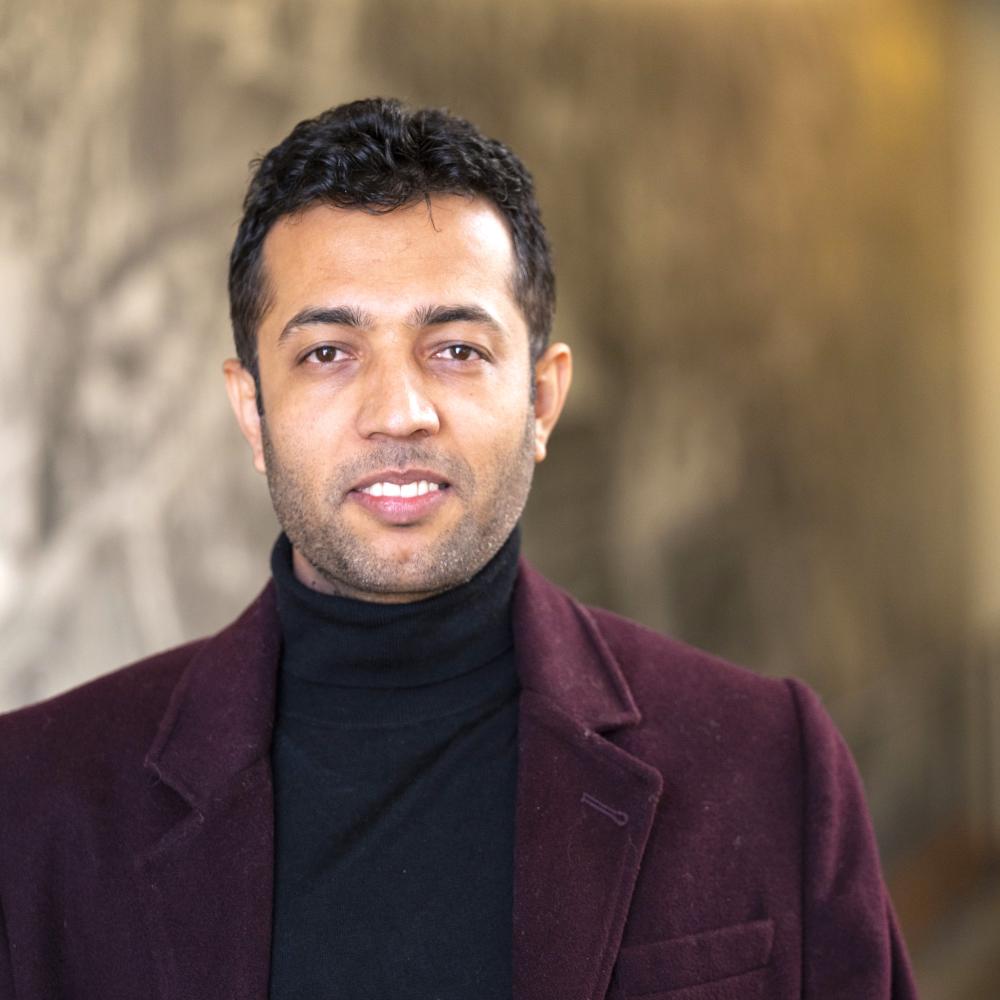
Four years after reclaiming power in Afghanistan, the Taliban have established a state that extends far beyond traditional authoritarianism. While much of the global discourse views the Taliban regime through the lens of religious fundamentalism or terrorist affiliations, a more precise conceptual framework is needed to understand the comprehensive nature of power and authority within the Taliban governance.
The regime has institutionalized a singular interpretation of Islamic governance that brooks no alternatives. Unlike authoritarian systems that might allow ideological diversity in non-political spheres, the Taliban's approach represents a total ideological project that encompasses religion, culture, education, and daily life.
This webinar will discuss the evolving patterns of Taliban governance, state-society relations, and dynamics of people's power and civil resistance, as well as the current status of the Taliban's interaction with regional countries and the international community.
Objectives:
- Examine the nature of power and authority under the Taliban regime and the mechanisms through which the regime exercises control
- Discuss evolving patterns of governance of the Taliban in the last four years, including changes in institutional development
- Analyze the way the Taliban regime constructs and maintains its legitimacy through the discursive practices, religious doctrine, and governance outcomes
- Explore the balance of power amongst key actors, factions, and institutions under the Taliban
- Discuss the pattern of civil resistance and people's power against the Taliban
- Evaluate how international sanctions, isolation, and geopolitical dynamics create both constraints and opportunities for the Taliban
Speakers
Dr Antonio Giustozzi took his PhD at the London School of Economics and Political Science (LSE) and is currently Senior Research Fellow at RUSI.
He is the author of several articles and papers on Afghanistan, as well as of six books: War, Politics and Society in Afghanistan, 1978-1992 (Georgetown University Press), Koran, Kalashnikov and Laptop: the Neo-Taliban Insurgency, 2002-7 (Columbia University Press), Empires of Mud: War and Warlords in Afghanistan (Columbia University Press), Policing Afghanistan (with M. Ishaqzada, Columbia University Press, 2013), The Islamic State in Khorasan (Hurst, 2018) and The Taliban at War (Hurst, 2019).
Dr Giustozzi also edited a volume on the Taliban, Decoding the New Taliban (Columbia University Press, 2009), featuring contributions by specialists from different backgrounds.
Beyond Afghanistan, Dr Giustozzi published articles on the conflict in Syria and jihadist groups in Central Asia, authored a volume on the role of coercion and violence in state-building, The Art of Coercion (Columbia University Press, 2011) and edited another volume on DDR processes, Post-Conflict Demobilisation, Disarmament and Reintegration: Bringing State-Building Back in (Ashgate, 2012).
Michael Kugelman is a longtime analyst and observer of South Asia. He is currently a nonresident senior fellow at the Asia Pacific Foundation, and senior adviser for India, Pakistan, and Bangladesh at Horizon Engage, a geopolitical risk consultancy. He is also a columnist for Foreign Policy magazine and writes its South Asia Brief, a weekly newsletter of news and analysis from the region. His experience also includes nearly 20 years of managing the South Asia portfolio at the Wilson Center think tank, and he was founding director of its South Asia Institute in 2022. He writes and comments regularly for major media outlets in the US, Europe, and South Asia. His current projects focus on India's energy transition, and the shifting geopolitics of South Asia. He also recently produced a study on the role of strategy in the US-led war in Afghanistan.

She is also the President of the Andiana Foundation, a think tank focused on security and peace, and is a Nonresident Senior Fellow at the Atlantic Council.
A distinguished scholar and policy analyst, Dr. Sakhi specializes in security, conflict resolution, geopolitics, and peacemaking. Her recent book, Human Security and Agency: Reframing Productive Power in Afghanistan, along with her latest publications on transnational security challenges in Afghanistan and the broader region, offers a comprehensive analysis of the ongoing security crisis.
A former Fulbright Scholar, Dr. Sakhi has held several prominent positions, including Director of Policy and Diplomacy at McColm & Company; course coordinator and instructor at the U.S. Department of State's Foreign Service Institute; Country Director at the Open Society Foundations; and Executive Director and Trustee at the American University of Afghanistan.
Her research work has been supported by fellowships at the Kroc Institute for International Peace Studies, the National Endowment for Democracy, Columbia University, and the International Center for Tolerance Education. She has written extensively on issues such as transnational and regional security, militancy, human security, the politics of peace, and interstate conflict, and continues to be a regular voice in policy discussions on these topics.

She is an Associate at the Center for Strategic and International Studies, an Adjunct Professor at Pace University and the City University of New York, a human rights advocate and foreign policy commentator. She is a life member of the Council on Foreign Relations and serves as Board Chair for Women for Afghan Women, a social service agency in the US and Afghanistan.
Ms. Pforzheimer is the author of numerous articles and op-eds on Afghanistan policy, and co-author of studies and articles on issues relating to international organized crime and fentanyl. Her thirty-year diplomatic career focused on security, rule of law, and human rights policy. She was the Acting Deputy Assistant Secretary of State for Afghanistan and Deputy Chief of Mission at the US Embassy in Kabul; Office Director for UN peacekeeping and sanctions; head of the $700 million security assistance program in Mexico; the lead human rights officer in Turkey and South Africa; and director at the National Security Council regarding Central American migration. Ms. Pforzheimer is a graduate of Harvard University, with a Masters degree in National Security Studies from the National Defense University.
His reporting on jihadist networks, foreign fighters, refugees, trafficking and criminal organizations across the Middle East and North Africa was recognized by the Royal Television Society in 2015, and he earned nominations for the Orwell Prize for Journalism in 2021 for his work on modern slavery and in 2022 for his coverage of conflict.
He is the author of three books—the critically acclaimed non‑fiction To The Mountains: My Life in Jihad; the historical novella Travels of Ibn Fudayl; and the crime novel The Darkness Inside, now optioned by Big Deal Films—and publishes regularly on his Substack, The Blood Rep. He serves as a judge for the NUJ/Orwell Society Young Journalist Awards. Hussein has lived and worked across the Middle East, and knows several languages.
He is also a senior fellow at the Atlantic Council’s South Asia Center.
Hameed has over a decade of experience in policy advice, research design, analysis, project management and collaborative partnerships. At Chatham House, his research focuses on the politics and society of Afghanistan and Pakistan, political economy of state building and institutions in South Asia, regional integration and connectivity between South Asia and Central Asia regions, civil society, the environment, migration and securitization policies in Europe, displacements in the Global South, and Islamist militancy and extremism.

Dr. Sadr is the founding editor-in-chief and host of Negotiating Ideas, an online magazine and podcast on democracy and pluralism. Previously, he worked as an assistant professor of political science at the American University of Afghanistan (AUAF), as a researcher at the Afghanistan Institute for Strategic Studies (AISS), and at Kabul University's National Centre for Policy Research (NCPR).
His primary research interests include the political theory of pluralism, governance, human rights, and political Islam. Dr. Sadr has made significant contributions to his field. His book, Negotiating Cultural Diversity in Afghanistan, which won a 2022 book prize for Best Book in Social Science from the Central Eurasian Studies Society, examines the challenges to peaceful coexistence in a pluralistic society and develops a political theory of governance of diversity. Dr. Sadr holds a Ph.D. (2018) from South Asian University (SAU), a university established by the SAARC nations.
Sponsorship of an event does not constitute institutional endorsement of external speakers or views presented.


